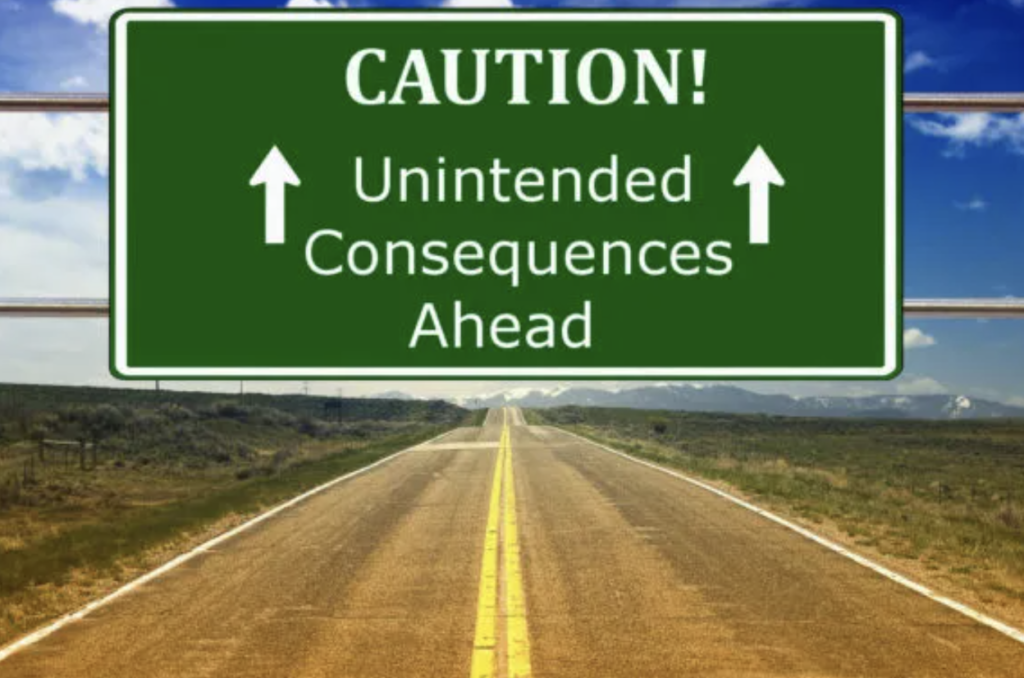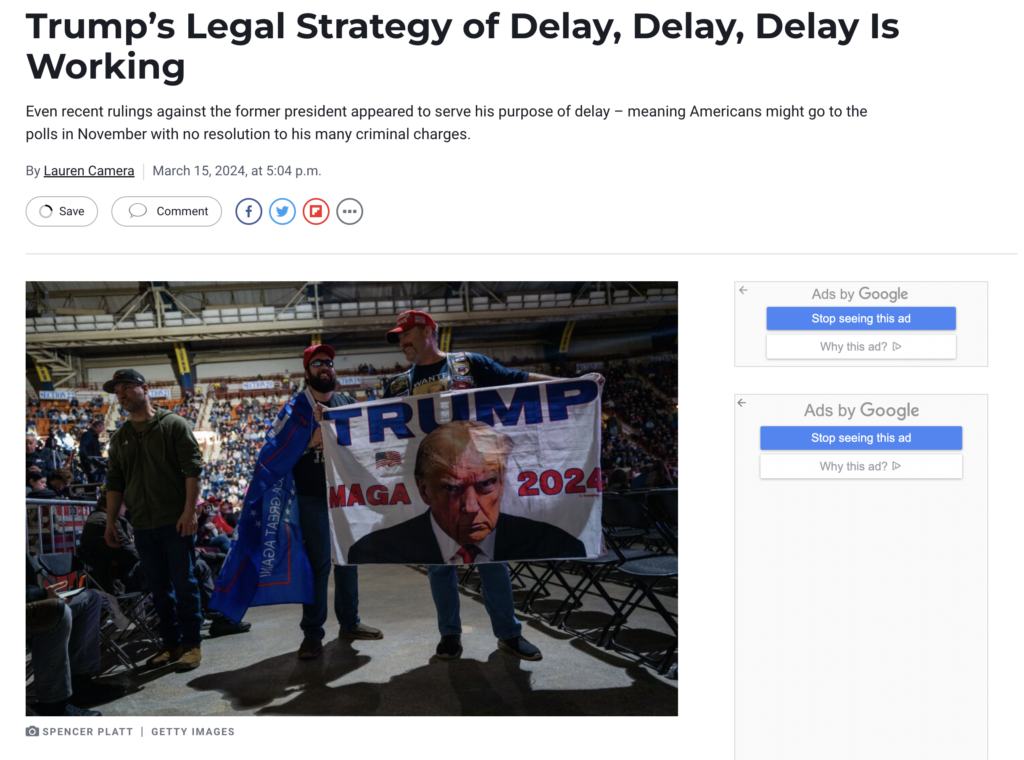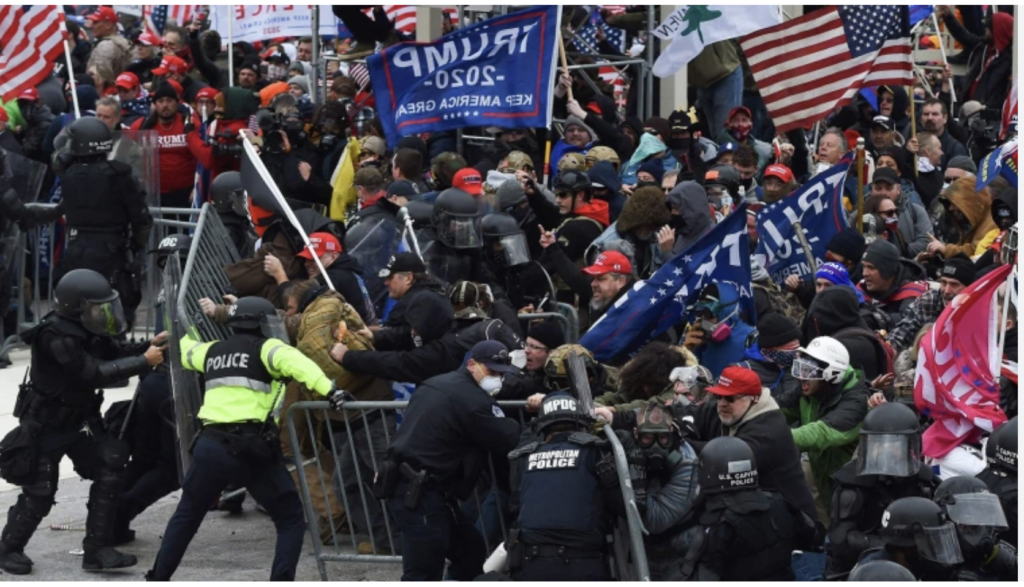Politics is sometimes shaped by the Law of Unintended Consequences (LUC). The actions that politicians take expecting a particular result can sometimes lead to unanticipated outcomes.

For instance, in 2011 Minnesotans saw the Law of Unintended Consequences come into play when Republican political hacks in the state legislature voted to put a same-sex marriage ban on the ballot. Their thinking was that a majority of Minnesotans, who they assumed were as eager as they were to outlaw marriage equality, would turn out in the 2012 elections to pass the amendment. They then hoped that the voters attracted by the marriage ban would elect anti-LGBTQ Republicans.
It didn’t work out that way. To the surprise of many, the Republican’s same-sex marriage amendment was rejected by 51.9% of Minnesota voters. This made Minnesota the first state to reject such a ban at the ballot box. To make matters worse, Republicans lost control of the Minnesota Legislature.
This allowed state Democrats to pass a statute legalizing same-sex marriage in 2013.
In other words, the heated debate over the Republican-generated ballot measure made Minnesotans more accepting of same-sex marriage, not less. In this way, the Republicans’ ban plan led to a legalization law. Go Law of Unintended Consequences!
Similarly, at the national level, the 70 times congressional Republicans tried and failed to repeal the Affordable Care Act (ACA)/Obamacare forced previously cowed and muted ACA supporters to finally explain the tremendous value of the ACA. As a result of their pro-ACA advocacy during those 70 debates, an overwhelming two-thirds of Americans now support the preexisting conditions protections of the ACA. Support for ACA repeal is now just 17%.
As with same-sex marriage in Minnesota, the once-unpopular ACA became quite popular, thanks to Republicans’ efforts to kill it.
With these LUC examples in mind, I’m hoping that the LUC might come to the rescue when it comes to Team Trump’s relentless efforts to delay his pending criminal trials. Through a series of legal maneuvers, Trump’s army of lawyers has been pushing out the start of trials, presumably so that verdicts and appeals can’t be finalized prior to the November 2024 election.

The chances are good that Trump’s delay tactics will largely do exactly what they are intended to do, help him once again escape legal and electoral accountability. But maybe, just maybe, they could hurt him. Here’s how:
If Trump’s criminal trials were happening this winter or spring, as originally hoped, the damaging information spotlighted during the heavy coverage of the criminal trials could by November be largely forgotten by lightly engaged, easily distracted swing voters. On issue after issue, we’ve seen that swing voters have the attention spans of gnats. The news they’re casually focused on today could easily get forgotten by the time they vote seven months from now.
But if Team Trump’s delay tactics cause the insurrection-related testimony to be dominating the news in early fall, that could make those issues much more top-of-mind for voters during the closing days of the campaign.
Imagine a September and/or October dominated by wall-to-wall news of insurrection trial coverage. This coverage is constantly showing voters alarming images of Trump supporters assaulting police. Imagine swing voters seeing the mountain of evidence showing Trump doing nothing to stop the bloody assault and subsequently praising the rioters. Imagine them hearing law enforcement officers and Trump’s most loyal supporters and staff giving damaging blockbuster testimony about the bloody chaos that Trump created, relished, and glorified.
Imagine that this is what swing voters are hearing in the immediate lead-up to the election, rather than Trump’s most effective criticisms of Biden about the economy and immigration. And all of this is coming to them via a judicial setting, which feels more weighty and credible to them than the 2022 congressional hearings.

Even though the verdict and appeals wouldn’t be completed by Election Day in this scenario, these are hardly the final images Trump’s campaign strategists want in undecided voters’ minds as they head to the ballot box. If the trial timing worked out this way, the delay tactics could unwittingly keep the insurrection nightmare fresher in voters’ minds than would have been the case if the trials hadn’t been delayed and were happening now.
Again, this is a long shot. The more likely outcome is that Trump’s delay tactics will cause him to largely push his law-breaking out of voters’ minds until after the election.
But who knows, maybe we will have a little LUC.
